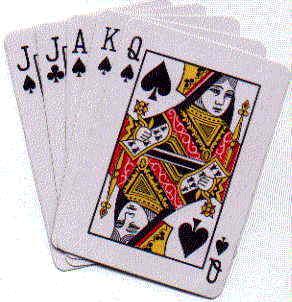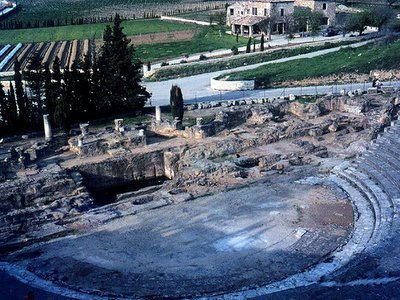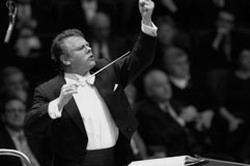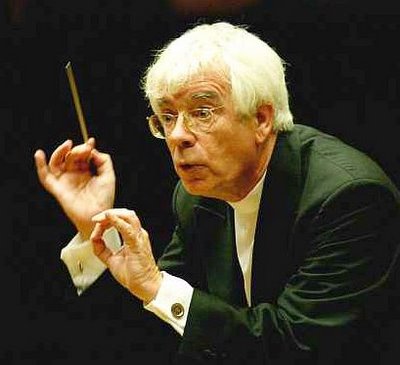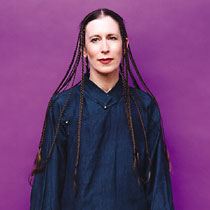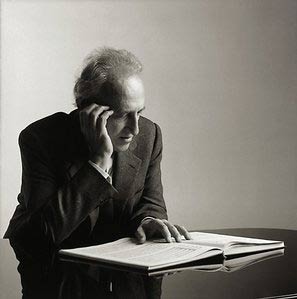Would You Like Some Mozart with Your Centerfold?
 W.A. Mozart, Violin Concertos, Sinfonia Concertante, A-S.Mutter, Y.Bashmet / LPO DG     |
The promotional DVD sent out a few months ago that presents DG’s Mozart Forever celebration in honor of Mozart's 250th birthday allows for some insights into the Anne Sofie Mutter Mozart Project. Mme. Previn is shown during rehearsals of the violin concertos and the Sinfonia Concertante, with long-time collaborator Lambert Orkis in excerpts of what will be a recording of the complete violin sonatas and in a recording session of the late piano trios where she teams up with hubby André (on a regular Steinway) and one of her protégés, the youngish Munich cellist Daniel Müller-Schott.
It shows her conducting and playing with the London Philharmonic (“an orchestra with almost chamber-like qualities” and “a formidable first desk that allows [her] to fulfill her vision of these concertos”) as well as playing snippets of the other works and much of her musing about Mozart and her collaborators. The latter tend to be relegated to nodding, agreeing, and asking questions to answers that Frau Mutter had already written down and memorized. None of this is very filling nor terribly probing, but it is very slick and well done and was only to be a teaser, anyway – showing this unabashedly gorgeous violinist (in her 40s, after all) from her various best sides.
[Edit: The excerpts talked about in the following paragraph were just an impromptu performance for the video; the actual recordings were made under proper conditions and with Previn playing a Steinway. See also "A.S.Mutter in Mozart".]
The excerpts from the sonatas cannot, must not, be the finished product – since they sound god-awful. The tangy and creaky Mozartflügel may not ever be gotten to sound good (everything that is bad about the fortepiano, none of its merits), but the stringent violin sound frequently off pitch (sparing vibrato on steel strings doesn’t help) makes listening even to half a minute of excerpts grating. Even if much improves, how this odd demi-period style - neither fish nor fowl - is supposed to compete against either Manze-Egarr (HMU) or Podger-Cooper (Channel Classics – now on their second disc of what is going to be a complete set) I do not know. Among non-period style recordings it will compete – complete as it will be – against Barenboim/Perlman, which is a tall order, too. If you are looking just for some of those sonatas, of course, I can only repeat the highest of praise for the Steinberg/Uchida recording on Philips, which I have heaped on that recording - including in the Best Recordings of 2005 overview.
In the trios there is not much that one can tell from the samples. Her musical companions get ASM’s lavish praise, and the issue should bring some deserved main-stream attention to Müller-Schott, who lovingly recorded Raff’s cello works and can also be heard in the Khachaturian concerto, where he shares disc space with Arabella Steinbacher’s rendition of the violin concerto. The reference in the trios is still the Beaux Arts Trio on Philips, and the original instrument recordings with the Mozartean Players on Harmonia Mundi’s budget label Classical Express make for two very delightful discs that are true bargains.
The concertos are now available as the first batch of these recordings – and I’ve been listening to them on and off over a few months. Mozart was of course the composer with which ASM launched her career – K.211 in her first public recital and K.216 in her famous Salzburg debut under her mentor, Herbert von Karajan. Thanks to Yuri Bashmet’s excellent contribution, we also get the Sinfonia Concertante but not – lamentably if understandably – the apocryphal Adelaide Concerto, which has been proven a (delightful) Marius (not Henri) Casadesus-composed fraud.
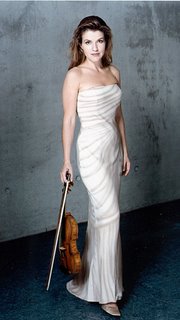 How her interpretation of the Mozart concertos actually sounds? Well, it’s very… personal. This Mozart has ‘Ego’ written all over it. She arrives upon the scene of concerto no. 2 (K.211) like a wild cat thrown into proceedings from a hatch above, claws ready. And this kitten has attitude, and that is established in almost every note. There are little touches, flourishes, and aggressive new lines that have “Mutter” written all over them. There are even times where she out-nadia-salerno-sonnenbergs Nadia Salerno-Sonnenberg, although I grant Mutter more judiciously chosen (and constant) tempi.
How her interpretation of the Mozart concertos actually sounds? Well, it’s very… personal. This Mozart has ‘Ego’ written all over it. She arrives upon the scene of concerto no. 2 (K.211) like a wild cat thrown into proceedings from a hatch above, claws ready. And this kitten has attitude, and that is established in almost every note. There are little touches, flourishes, and aggressive new lines that have “Mutter” written all over them. There are even times where she out-nadia-salerno-sonnenbergs Nadia Salerno-Sonnenberg, although I grant Mutter more judiciously chosen (and constant) tempi.The undeniable thrill her playing can induce...
I don’t know exactly how I feel about the D major concerto (no. 4, K.218) where the playing has an electrifying, high tension. It’s exciting, certainly, with extra trills and thrills – but perhaps in the same way as swimming in a pool with an electric eel might be. Alertness everywhere in that Allegro. ‘Alertness’ say some, ‘self conscious’ might come to mind for others. The little touches here and there, the shudders (immaculately precise, all of them) are awe-inspiring but will have purists and many other violinists cringe… and the latter not for jealousy, so much, as for the blatant and gratuitous virtuosity in a work that has natural beauty to offer that (one might think) should suffice. Undeniable, however, is the thrill that her playing can induce in all others, and it is done in undeniably better taste (and executed with more skill) than a lot of other interpreters’ willful appropriations of the music in front of them. The tender-footed Andante cantabile is as sung by a tiny, skillful bird. A completely self-assured bird. The all too carefully phrased solo passage at 5:40, however, might be pushing it. The rock-solid rhythm of the Rondeau: Andante grazioso is splendid and had me catch myself tapping my foot all along. Somewhere above it Mutter trills on forever, precision once again being her calling card. The Allegro in the G major concerto (K.216) is fresh and refreshingly brisk, the Adagio of the same concerto rolls out at a pace that borders ponderous. The E-flat major Sinfonia Concertante’s Andante whines a little too much in the solo passages, but the collaboration between Mutter and Bashmet produces a delightful result and Bashmet’s intelligent viola contribution can take a good share of the credit.
This Mozart impresses on many occasions but leaves me unsure if Mozart is the playground where I most want to be impressed. I think that I might prefer just to be delighted (like on Baiba Skride’s recording). Still, I can’t dismiss this CD as much as the combination Mutter/Mozart would have had me be inclined to. Parts of these concertos are plain fun (one eye laughing, one eye crying) and too well done to be scoffed at. If WAM’s contribution to this disc is the primary reason for its success, ASM at least does not stand in the way much. The purist will be horrified, the casual listener tickled. This record, at the very least, beats that worse-than-awful Tchaikovsky recording she recently put out, and we are glad to see standards rise, again.


